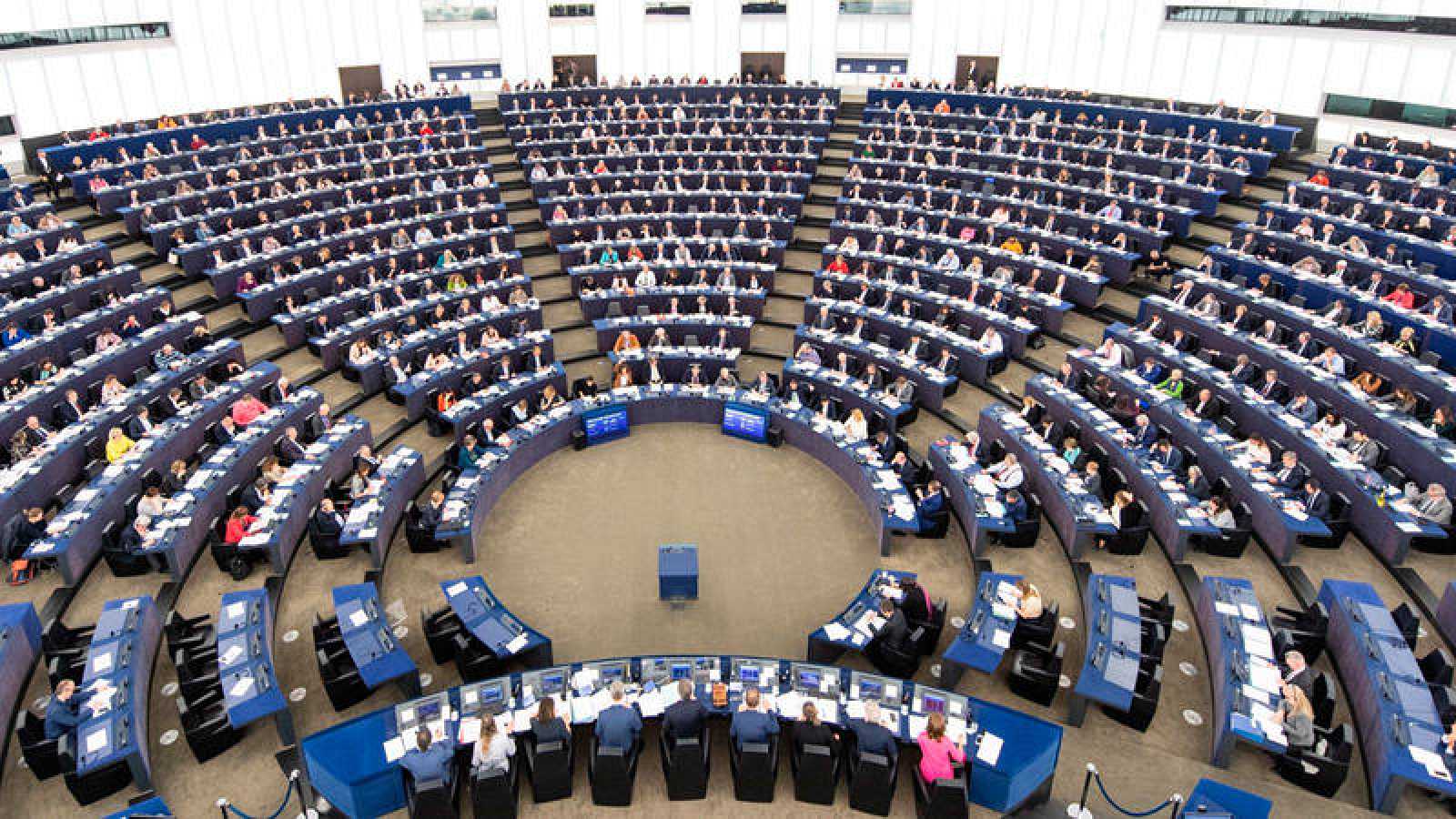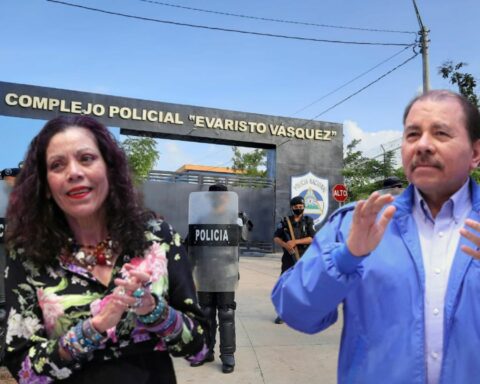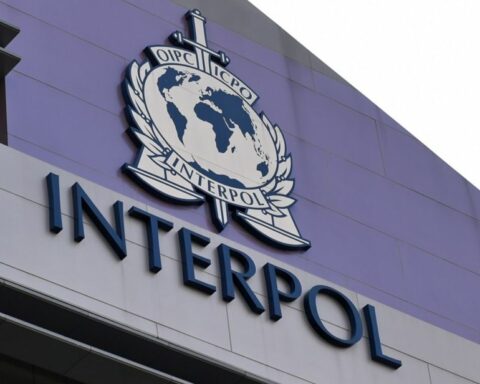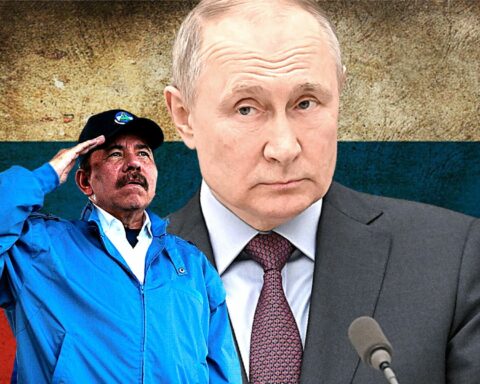Deputies of the European Parliament advocated this Wednesday, on the occasion of the fourth anniversary of the April Rebellion, for the extension of punishments against the regime of Daniel Ortega and Rosario Murillo and their allies, who “continue to violate the human rights of the Nicaraguan people.” The urgency was exposed in a webinar organized by the International Network for Human Rights (RIDH) and the International Network for Human Rights Europe (RIDHE).
MEP Soraya Rodríguez, member of the delegation of the Euro-Latin American Parliamentary Assembly (Eurolat) and of the Human Rights Subcommittee of the European Parliament, affirmed that “more can be done to isolate the Ortega-Murillo regime”, recommending actions such as the expansion of sanctions against “all judges, who have become an instrument, an executing arm of the repressive measures of the Ortega regime.”
“The European Parliament is here to work together with Nicaraguan society. There is a constant accompaniment to isolate this dictatorship”, he highlighted.
Deputy Javier Nart, vice president of the delegation for relations with Central America and member of the Foreign Affairs Commission of the European Parliament, supported Rodríguez’s position and added that “the sanctions are not only against politicians”, but also against “the repulsive judiciary that is incapable of imparting justice and the businessmen who benefit from the regime, who know what they are doing, and they also have to be purged”.
Alicia Holm, from the group of the Progressive, Socialist and Democratic Alliance in the European Parliament and member of the delegation for relations with the countries of Central America, pointed out that international pressure is “very important” and “does a lot of damage to the regime”.
“This international pressure on the Ortega regime is hurting it and it will reach a point where they will feel so trapped and they will have to open up to negotiate, talk and find a way out of this crisis,” he stressed.
They denounce serious violations to DD. H H.
Representatives of Nicaraguan civil society also participated in the webinar and denounced the serious human rights violations committed in Nicaragua. Among the panelists were Haydée Castillo, from the Nicaraguans in the World initiative; Amaru Ruíz, director of Fundación del Río; and Wendy Flores, coordinator of the Nicaragua Never Again Collective. Journalist Cindy Regidor, part of the team of CONFIDENTIAL and of the programs Tonight Y This weekwas also moderating the event.
Ramón Muñoz Castro, director of the RIDH in Geneva and president of the RIDHE, during the opening of the webinar denounced that in Nicaragua there is a total absence of the rule of law, pointing out that in the country there is “absolute arbitrariness, there is no independent justice, and the state organs are totally restricted by the regime and its allies”.
Castillo denounced that in the different areas of Nicaraguan territory, in the context of the fourth anniversary of the April Rebellion, there is siege and police repression, stressing that the people urgently need the support of the international community.
“The people of Nicaragua do not expect their problems to be solved from the outside, because they continue to fight from within, from the bowels of the monster, and we also do it from exile, but when there is a kidnapping in the best style of organized crime you cannot break those chains alone, therefore, the international community should not wait for blood to continue to flow, but assume that responsibility in defense of rights that are universal”, he exhorted.
He also recommended the “urgent formation of a multilateral international commission to begin an intense journey until the political prisoners are released.”
Advocate for the freedom of political prisoners
The MEPs also advocated working towards the release of the political prisoners held by the regime in Nicaragua. MEP Rodríguez took advantage of part of her speech to “demand the immediate release of the more than 170 political prisoners who are in jail, suffering isolation and torture conditions.”
MEP Nart stressed that it is “useful that a number of people in the world address a dictator asking about political prisoners, because when a prisoner is forgotten and when a brutal regime, such as the presidential binomial regime, acts with the brutality that we are witnessing, the fact that there are institutions that put their finger on this or that political prisoner means that the regime cannot do exactly anything with them”.
European officials insisted that more can be done for Nicaraguan society, supporting those in exile, working hand in hand with civil society organizations that continue to work inside and outside Nicaragua, and giving international protection to all those activists, defenders, journalists, who have fled the country.
The director of the RIDH dismissed the event by recalling the importance of the European Union remaining active to keep the issue of the situation in Nicaragua on the agenda, and so that all this support is also extended to civil society organizations, journalists, defenders of human rights that are inside and outside Nicaraguan territory.
The European Union (EU) in the last year has issued sanctions against more than a dozen officials of the Daniel Ortega regime. The list of those sanctioned includes members of the presidential family such as Laureano, Camila and Juan Carlos Ortega Murillo. Vice President Murillo was also sanctioned, and three institutions: the National Police, the Supreme Electoral Council (CSE) and the Nicaraguan Institute of Telecommunications and Post Office (Telcor).
In December 2021, the European Parliament (EP) approved a resolution on Nicaragua, in which they condemned the electoral farce of November of that year and ignored the new mandate of Ortega and Murillo. Also, he demanded that the EU and the member states “supervise” the funds assigned to the country to avoid corruption of the regime.







